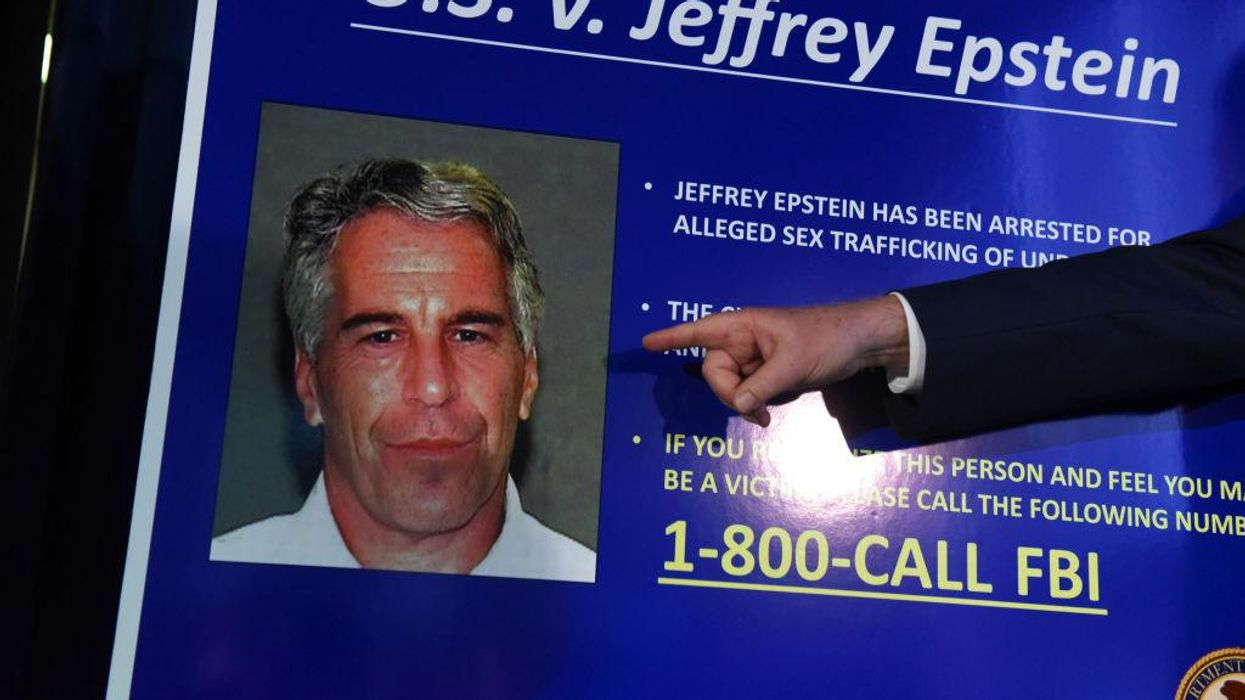
Photo by Stephanie Keith/Getty Images

The estate of Jeffrey Epstein has agreed to a settlement with the U.S. Virgin Islands totaling approximately $105 million, according to the territory's Attorney General Denise George.
As part of the massive settlement, the estate is to sell two private islands to independent third parties and give half the proceeds to the territory — the infamous Little St. James and Great St. James, which could garner a return of around $55 million each.
The sale, according to authorities, will ensure the islands are not used for "illicit purposes."
\u201cNews\u2014\n\nU.S. Virgin Islands DOJ unveils deal with Epstein estate.\n\n"Jeffrey Epstein\u2019s Notorious Island Will Be Sold While Ensuring It Won\u2019t Be Used for \u2018Illicit Purposes,\u2019 $105M Virgin Islands Settlement Reveals" @LawCrimeNews https://t.co/vpcKKWpsfX\u201d— Adam Klasfeld (@Adam Klasfeld) 1669849990
Jeffrey Epstein, who was found dead in his Metropolitan Correctional Center cell in 2019, was awaiting trial for allegedly operating an underage sex trafficking ring on multiple private islands. Epstein had many powerful connections, including former President Bill Clinton and England's Prince Andrew.
A nearly three-year long lawsuit has attempted to recoup funds from Epstein's estate, while separate cases against others such as Epstein's alleged confidant Ghislaine Maxwell have come and gone.
Along with 10 entities belonging to the estate, two co-defendants who were once labelled "indispensable captains" in complaints about Epstein's enterprise will pay the $105 million to U.S. Virgin Islands government. Much of the settlement will be recouped by having the estate repay the more than $80 million it received in tax benefits from the territory.
The attorney general argued that the territory was deceived regarding the tax benefits, while the lawsuit became complicated due to the estate's cash flow shortage.
According to the New York Times, Epstein's estate has just $22 million in cash despite the empire once amassing $600 million. The bulk of the funds have reportedly been going toward paying victims, legal representation, as well as the Internal Revenue Service. The estate will be granted one year to complete the payout, as other capital and assets are said to be tied to investments and are unavailable.
“This settlement restores the faith of the People of the Virgin Islands that its laws will be enforced, without fear or favor, against those who break them. We are sending a clear message that the Virgin Islands will not serve as a haven for human trafficking,” said the attorney general.
The U.S. Virgin Islands Department of Justice also had gripes with the estate, resulting in an agreement to pay $450,000 to the government for environmental damage. The government found that Epstein "razed the remains of centuries’-old historical structures of enslaved workers to make room for his development,” said the department that sued the estate using an act called the Criminally Influenced and Corrupt Organizations Act, which is similar to mainland U.S. legislation against racketeering, often referred to as RICO.
The territory's press release also states that the settlement with the Epstein estate is possibly the largest in its history: "Attorney General George acknowledged the dedicated work of her extraordinary team of attorneys for their relentless dedication and outstanding work in what is believed to be the largest monetary settlement in the history of the Virgin Islands."
Andrew Chapados